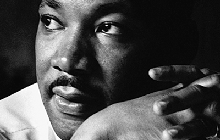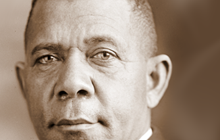The British edition of “The Satanic Verses” came out on Monday, September 26, 1988, and, for a brief moment that fall, the publication was a literary event, discussed in the language of books. Was it any good? Was it, as Victoria Glendinning suggested in the London Times, “better than ‘Midnight’s Children,’ because it is more contained, but only in the sense that the Niagara Falls are contained,” or, as Angela Carter said in the Guardian, “an epic into which holes have been punched to let in visions . . . [a] populous, loquacious, sometimes hilarious, extraordinary contemporary novel”? Or was it, as Claire Tomalin wrote in the Independent, a “wheel that would not turn,” or, in Hermione Lee’s even harsher opinion, in the Observer, a novel that went “plunging down, on melting wings toward unreadability”? How large was the membership of the apocryphal Page 15 Club of readers who could not get past that point in the book?
Soon enough, the language of literature would be drowned in the cacophony of other discourses—political, religious, sociological, postcolonial—and the subject of quality, of artistic intent, would come to seem almost frivolous. The book that he had written would vanish and be replaced by one that scarcely existed, in which Rushdie referred to the Prophet and his companions as “scums and bums” (he didn’t, though he did allow the characters who persecuted the followers of his fictional Prophet to use abusive language), and called the wives of the Prophet whores (he hadn’t—although whores in a brothel in his imaginary city, Jahilia, take on the names of the Prophet’s wives to arouse their clients, the wives themselves are clearly described as living chastely in the harem). This nonexistent novel was the one against which the rage of Islam would be directed, and after that few people wished to talk about the real book, except, usually, to concur with Hermione Lee’s negative assessment.
When friends asked what they could do to help, he pleaded, “Defend the text.” The attack was very specific, yet the defense was often a general one, resting on the mighty principle of freedom of speech. He hoped for, felt that he needed, a more particular defense, like those made in the case of other assaulted books, such as “Lady Chatterley’s Lover,” “Ulysses,” or “Lolita”—because this was a violent attack not on the novel in general, or on free speech per se, but on a particular accumulation of words, and on the intentions and integrity and ability of the writer who had put those words together. He did it for money. He did it for fame. The Jews made him do it. Nobody would have bought his unreadable book if he hadn’t vilified Islam. That was the nature of the attack, and so for many years “The Satanic Verses” was denied the ordinary life of a novel. It became something smaller and uglier: an insult. And he became the Insulter, not only in Muslim eyes but in the opinion of the public at large.
But for those few weeks in the fall of 1988 the book was still “only a novel,” and he was still himself. “The Satanic Verses” was short-listed for the Booker Prize, along with novels by Peter Carey, Bruce Chatwin, Marina Warner, David Lodge, and Penelope Fitzgerald. Then, on Thursday, October 6th, his friend Salman Haidar, who was Deputy High Commissioner of India in London, called to tell him formally, on behalf of his government, that “The Satanic Verses” had been banned in India. The book had not been examined by any properly authorized body, nor had there been any semblance of judicial process. The ban came, improbably, from the Finance Ministry, under Section 11 of the Customs Act, which prevented the book from being imported. Weirdly, the Finance Ministry stated that the ban “did not detract from the literary and artistic merit” of his work. Thanks a lot, he thought. On October 10th, the first death threat was received at the London offices of his publisher, Viking Penguin. The day after that, a scheduled reading in Cambridge was cancelled by the venue because it, too, had received threats.
The year ended badly. There was a demonstration against “The Satanic Verses” in Bolton, in the northwest of England, where the book was burned, on December 2nd. On December 3rd, Clarissa received her first threatening phone call. On December 4th, there was another one; a voice said, “We’ll get you tonight, Salman Rushdie, at 60 Burma Road.” That was her home address. She called the police, and officers stayed at the house overnight. Nothing happened. The tension ratcheted up another notch. On December 28th, there was a bomb scare at Viking Penguin. Then it was 1989, the year the world changed.






_17422494921.png )

